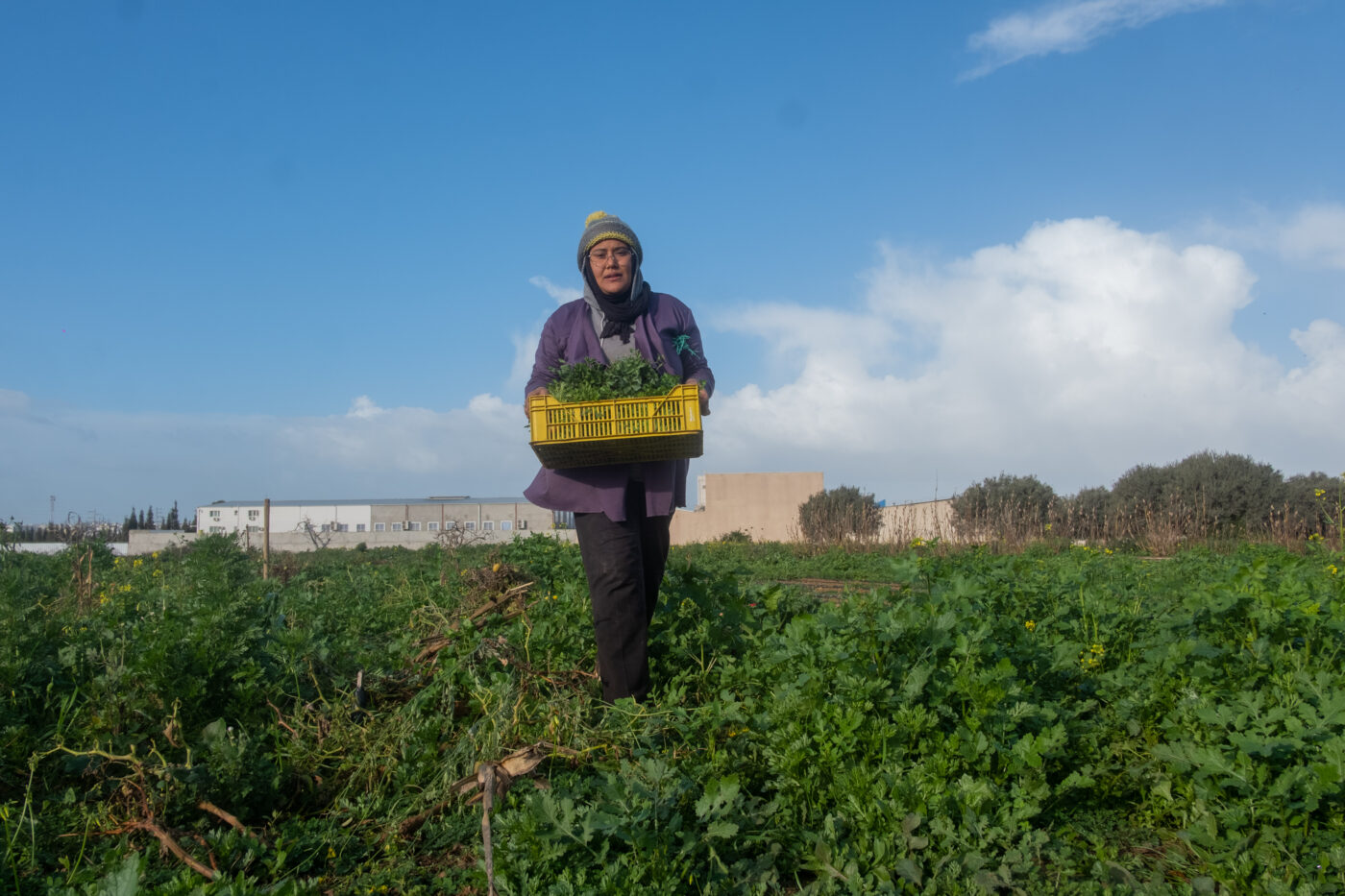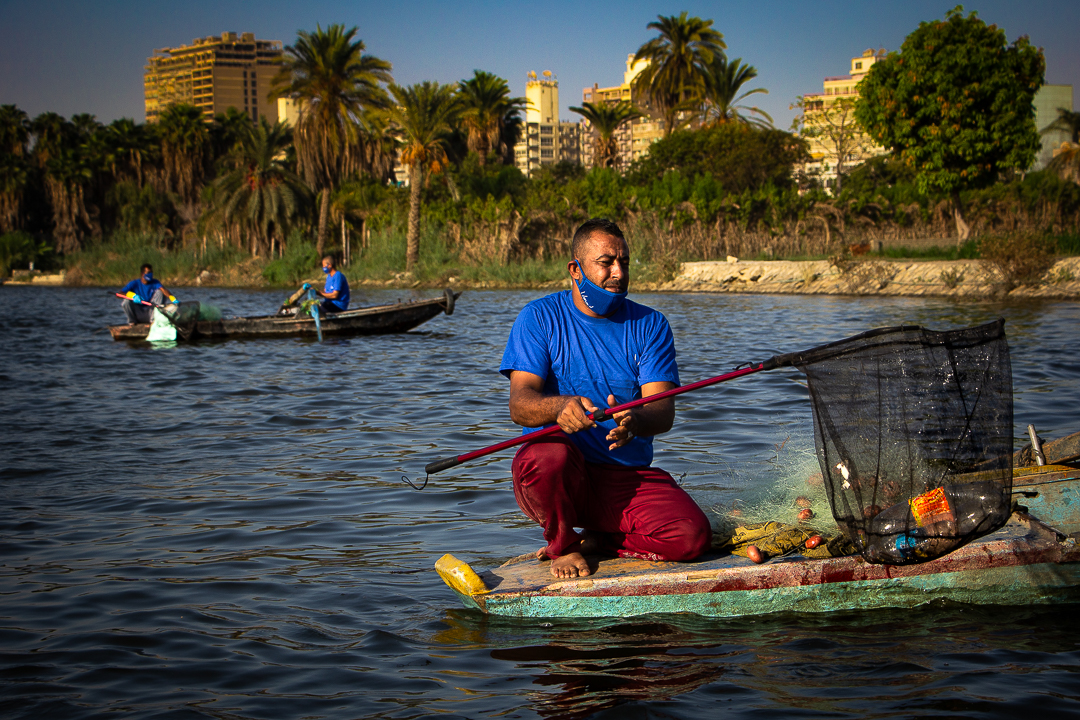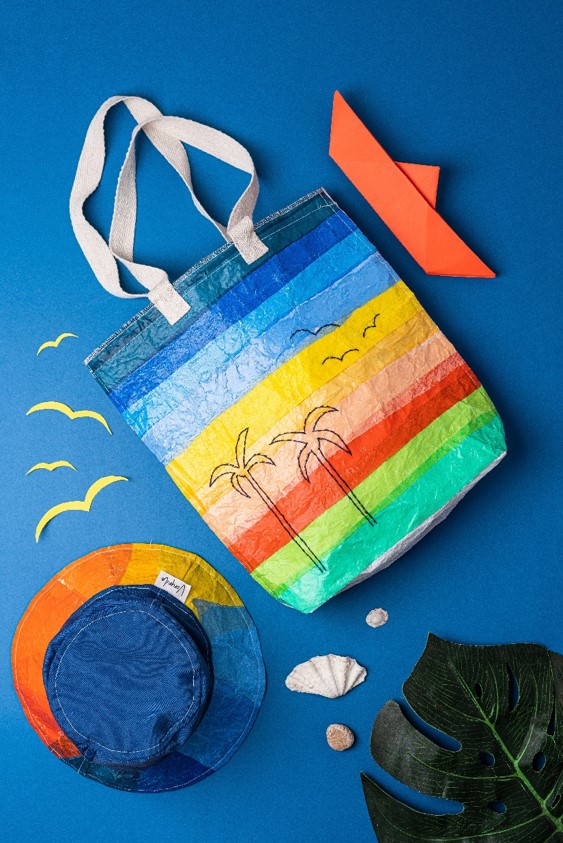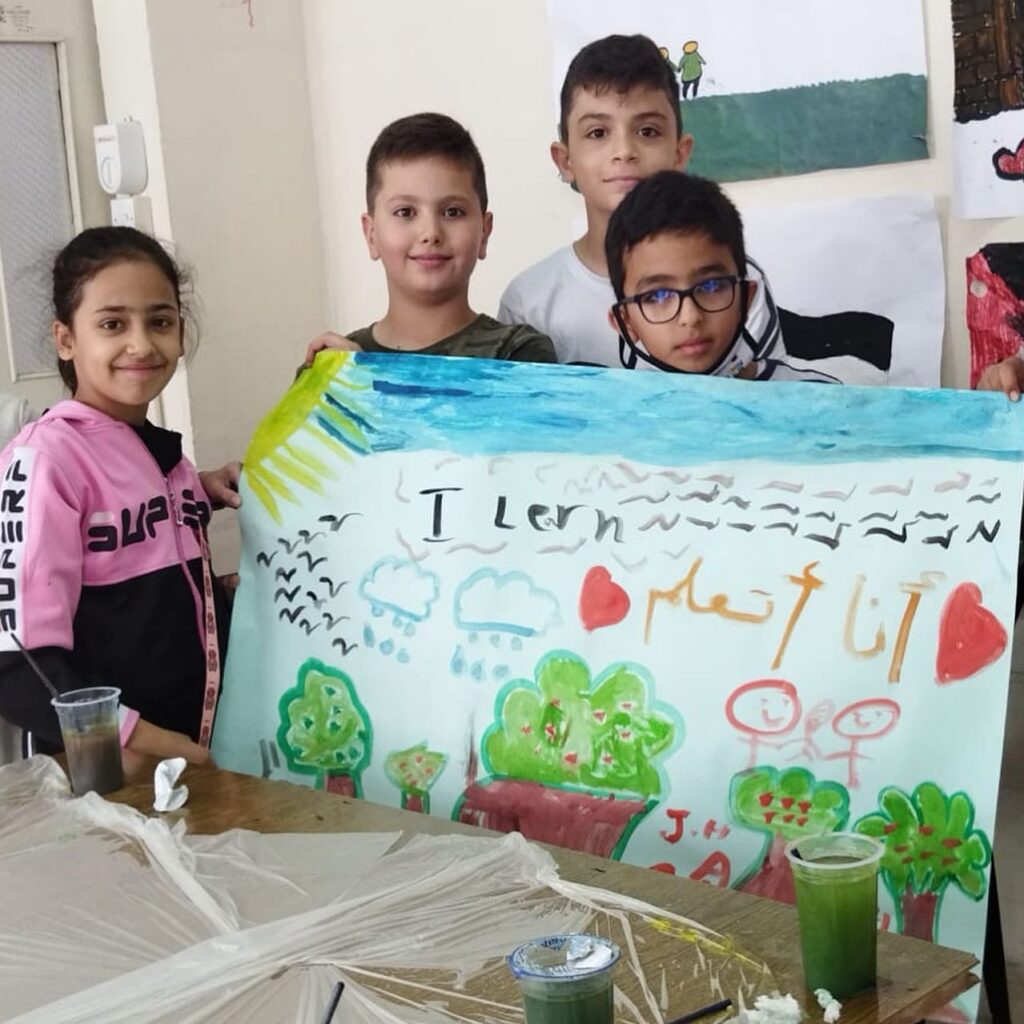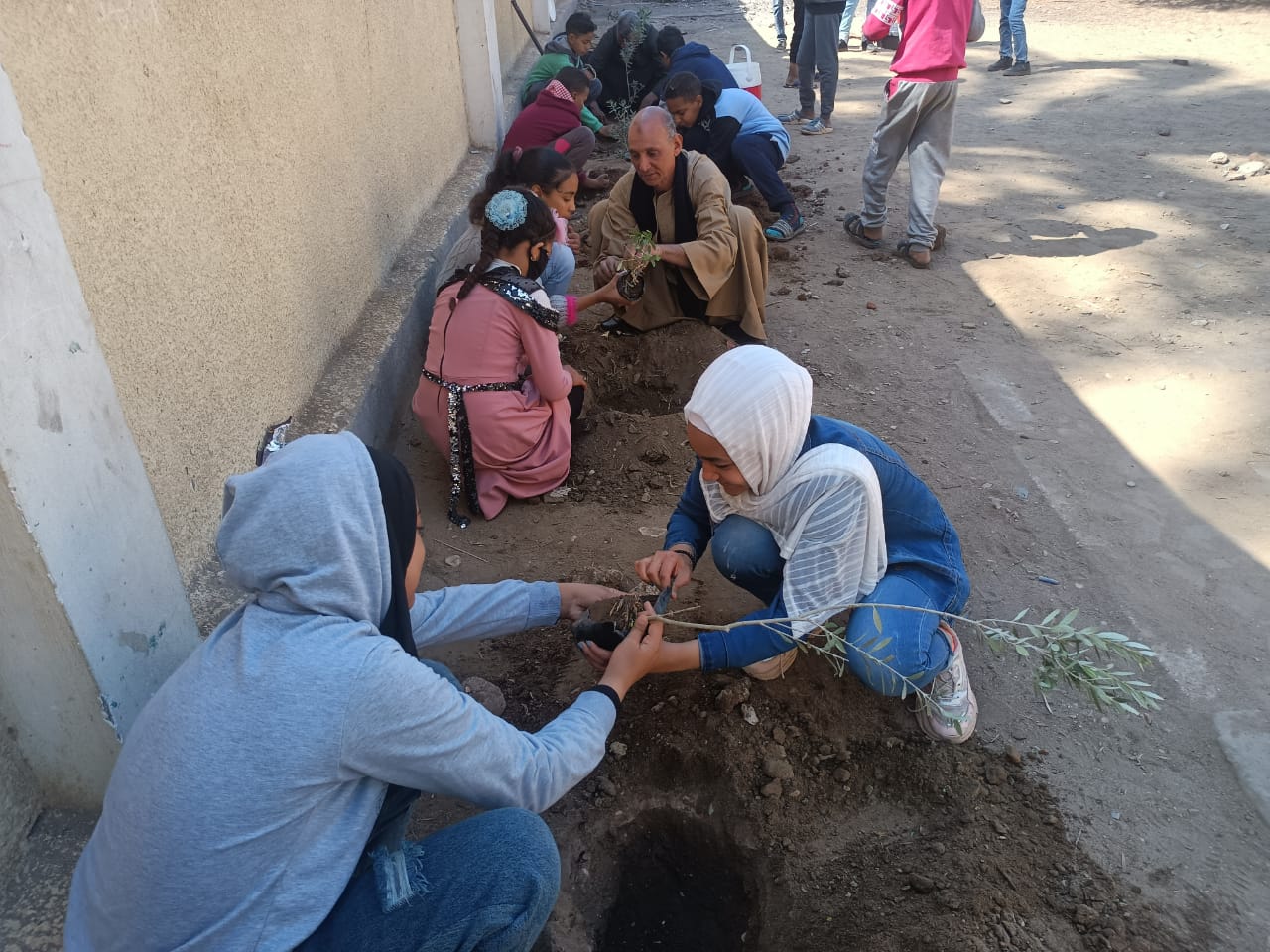Permaculture – an answer to unemployment in Tunisia
“Plant your farm” – this is Association Tunisienne de Permaculture‘s answer to unemployment. The project supported by DROSOS FOUNDATION aims to create 50 permaculture farms run by young people without employment. A few hundred square metres are enough to run a permaculture farm and many young people come from rural areas where their family owns a small piece of land. Permaculture makes it possible to obtain an optimum yield on a minimum surface area, without agricultural inputs (fertilisers, machinery) and by limiting the expenditure of water – particularly important in Tunisia as it is the Maghreb country facing the greatest risk of water shortage.
So far, the project has trained 25 people in permaculture techniques. One of them is Saber, who can now self-sustain his family thanks to the cultivation. ATP encourages its trainees to diversify their activities and offers trainings, such as the production of essential oils, in order to have a year-round income and not be dependent on the season.
“My family of four is self-sufficient in fruit, vegetables, eggs and meat. This was not the case before, with the same land,” Saber, project participant
On top of the empowerment and skills development at the individual level, the project aims to generate a larger impact, in particular:
- reduce inequalities and rural exodus
- create jobs and new opportunities for young people in rural areas
- create the first network of permaculture farmers in Tunisia
- valorise abandoned agricultural land and support for food sovereignty in Tunisia
- sensitize communities and public authorities to agroecology / environmental-friendly agricultural practices
- promote the profession of farmer-entrepreneur.
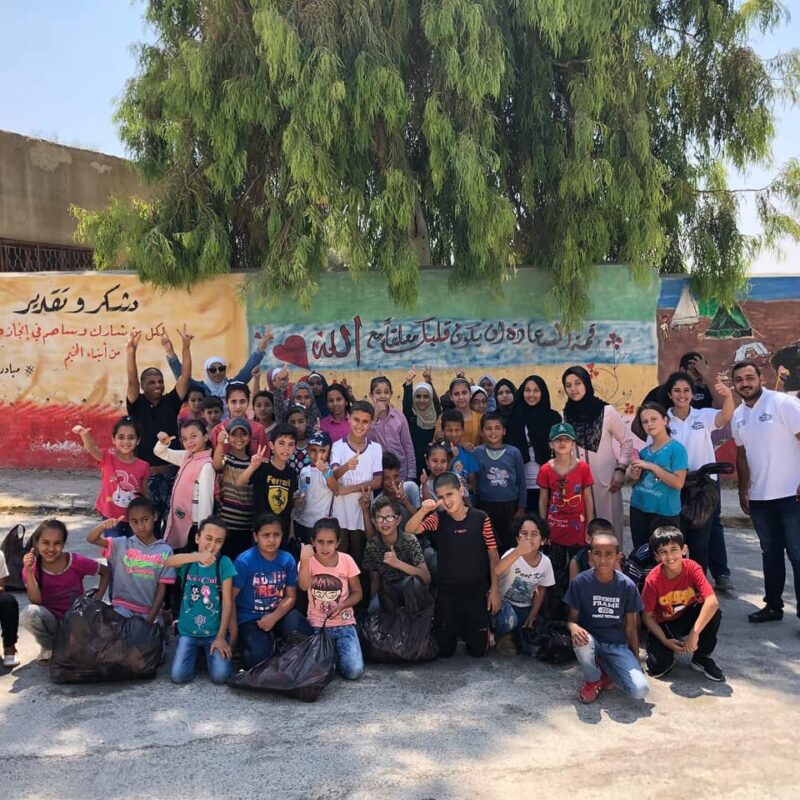
Engaging children and youth in awareness creation
Promoting social values and creating awareness about the environment and questions of waste are part of the activities in many of our projects. Young people can play an important role in sensitising others.
As part of the project “Arts for All” by our partner “Ana Masry for Training and development” in Upper Egypt, youth and children use a mobile theatre to perform a play in remote communities to raise awareness about the environment. Children learned how to use locally available materials and recycled plastic to create useful products and games. The youth also lead several campaigns to plant trees.
Similar activities with children take place in other projects, for example in Jordan with I Learn Jo, a programme allowing children and young people in difficult circumstances to enhance their life skills in a positive and enabling environment. As part of their offer, I Learn Jo developed two session formats in which they address the environment and climatechange as well as recycling, engaging the children in environmental-friendly behaviours.
Opportunities through upcycling
Creating opportunities for young people through recycling and upcycling activities is part of many of our projects across regions. This approach can have positive effects on different levels:
- Increased environmental and circular economy awareness among trainees and people buying upcycled products
- Skills development, in particular creative skills, by creating something new out of something existing
- Income generation and economic opportunities through selling upcycled products
- Waste reduction
Ressourc’In, a social enterprise based in Casablanca, Morocco, is one example of successfully making waste management an economic opportunity for disadvantaged youth. Ressourc’In was a project supported by DROSOS FOUNDATION with the aim to offer employment opportunities for young people who have dropped out of school via the recycling and upcycling economy. Through this project,
- 113 young people (80% of the young people trained) were placed in employment or an income-generating activity
- 6’200 people (children and adults) were sensitized to environmental protection issues through fun and practical activities
- 56 tons of waste were collected
- 130 recycled and upcycled products (recycled paper, plastic design, fabric weaving, paper, plastic and other materials collected) were developed under the newly created brand KOUN
Ressourc’In became financially self-sustainable thanks to their products and services (sale of products, team building for companies and activities for private schools, etc.).
Youth leading change
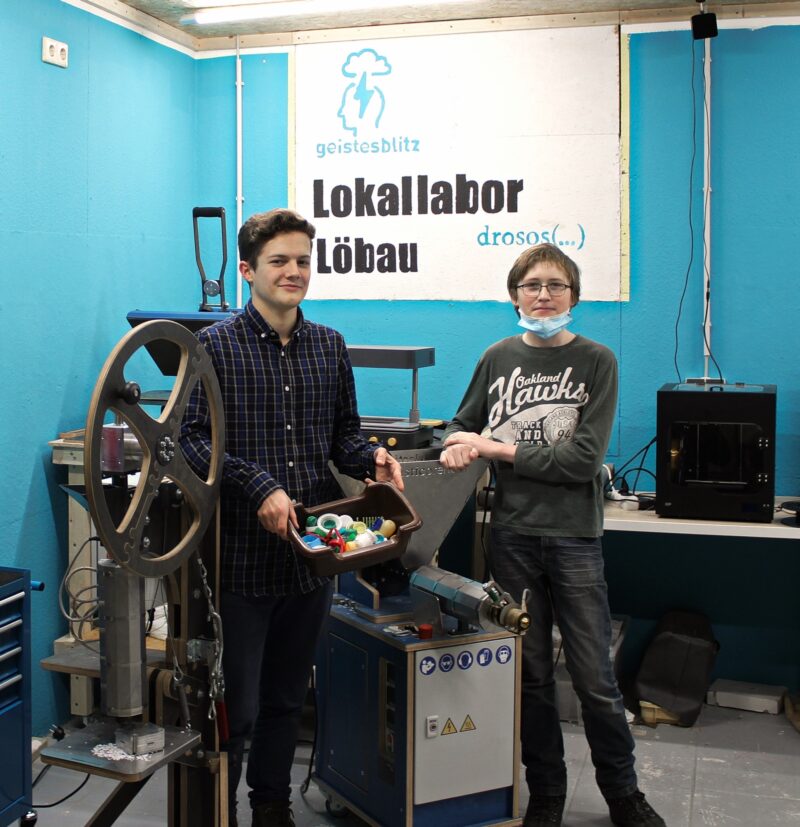
“Let’s be bold! Let’s have the courage to face the future and shape it instead of calling it names!”
This is what a group of young people in Löbau, a small town in the east of Germany, wants to inspire. Through the project Lokallabore implemented by Fabmobil e.V. and supported by DROSOS FOUNDATION, they founded a self-organised makerspace aiming to empower other young people to use modern technologies, regardless of their background.
Last year, they came up with the idea to recycle plastic waste to create new objects. With the support of the project, they acquired the necessary technical equipment and installed a #recycling corner. They also did tours to have many more young people discover the technique and try it out, and organised public waste collection campaigns. With these “waste donations”, they raise awareness and encourage people to do something good for the environment and at the same time support a youth project. As a thank you, every waste donor received a recycled comb or soap dish created by the youth.
Support youth-led initiatives
VeryNile is a youth-led initiative from Egypt that emerged from the Sustainability Innovation Lab led by the young social enterprise Bassita and supported by DROSOS.
VeryNile has a holistic approach and brings different stakeholders together to create lasting change: In 2021 alone, VeryNile worked with 54 fishing folks to remove 55 tonnes of plastic waste from the Nile, press it and sell it to upcycling companies. By collecting the plastic, the fishing folks earned an additional 1,100 Egyptian pounds per month.
Skills development in future-oriented technologies
IECD Lebanon is combining youth economic empowerment with environmental impact: On top of their regular youth training and career placement, IECD Lebanon has created ULEAP, a social enterprise specialized in training electro technicians and installing photovoltaic systems. With this model, IECD Lebanon
- provides technical training and hands-on experience to young people, skilling them in future-oriented technologies required in the job market
- responds to market needs by filling the gap in the lack of expertise in the installation & management of solar panels
- provides opportunities and long-term perspective to unemployed youth
- gives an answer to the electricity crisis in Lebanon
- promotes green energy and reduces CO2 emissions.
So far, 748 panels were installed, generating up to 1’622 kWh of green energy per day and translating into an annual reduction of 412 tons of CO2 emissions and annual savings of 238’000 USD on electricity bills.
This overview is non-exhaustive. Many other projects and partner organisations take similar or different green approaches. For further information, please get in touch with your respective DROSOS FOUNDATION office.
